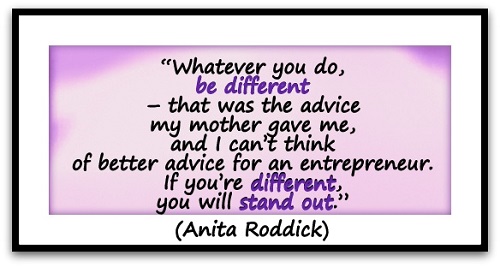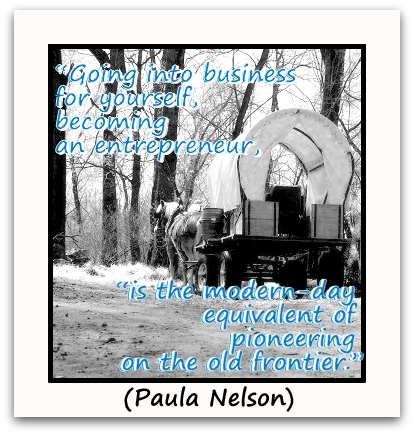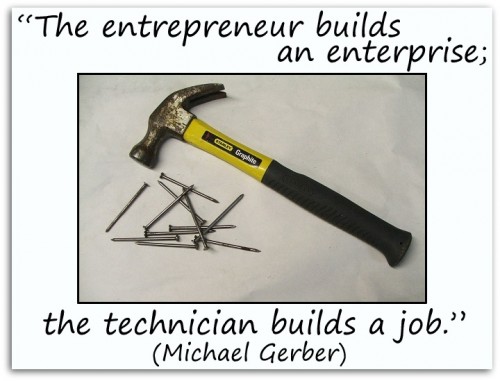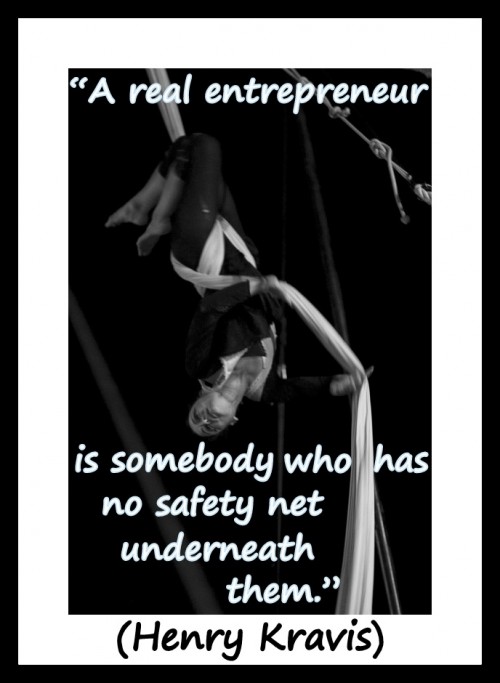Thinking of setting up your own coaching business? In today’s guest post Henry Lopez uses his 34 years of business experience to ask:
Ready, Willing and Able. Are You Ready to Become Your Own Boss?
By Henry Lopez

You have been dreaming about it for some time now. You talk about it with your friends and family, you are certain you have a great idea, and you may even have an elaborate business plan. Someday soon, you will be your own boss. Yet there always seems to be something that keeps you stuck as a “wantreprenuer”, and no closer to realizing your vision of becoming an entrepreneur.
What’s holding you back? Is it lack of confidence, fear of failure, a shortage of cash, or a combination of obstacles? All of these challenges, and more, are what keep some people on the sidelines while so many others charge ahead and launch their own business. Some of these challenges are perceived, and others are undeniably real. The question is, when and how do you know if you are prepared to become your own boss?
In my experience, it can be summarized by assessing if you are ready, willing and able. You have to be mentally and emotionally ready, you must be willing to sacrifice the time and effort required, and you must be able to afford the investment of time, money and energy.
By honestly assessing what is holding you back, you can begin to make real progress and get started on your journey to realizing your dreams.
Are you mentally and emotionally READY?
For most people, the fear of personal failure is often the biggest obstacle. Are you afraid of the embarrassment of personal failure – having to tell those you care about that you failed – or is it the fear of financial failure (i.e. you’ve taken a second mortgage on your house, borrowed against your 401(k) or used all of your savings)? There is a significant difference between these two types of fear. The former is mostly perceived and self-imposed, and the latter is a harsh realization of the potential impact of failure on your personal and family finances.
If your business idea requires you to risk everything you have financially, and failure would put you and your family in a precarious position, then it’s fair to say that you are likely not ready. You either need to adjust your business idea, or wait until you are in a more stable position financially.
How do you view failure? Is it something to be avoided at all costs, or something you can learn from? Once you have identified your financial exposure, the fear you must face and conquer is of the personal and perceived variety. You must overcome the fear of embarrassment. More debilitating than embarrassment, however, may be the lack of confidence in your ability to succeed. The story you tell yourself is probably one written for you by others who also remain permanently on the sidelines. The story you write for yourself is about having confidence in your abilities. Courage is not the absence of fear, but experiencing fear and moving forward anyway. Successful entrepreneurs harness that fear to fuel their intensity and desire.
To help you assess if you are ready, ask yourself these questions:
- How do you view risk, and what type of risk (reputation or financial) are you really concerned with?
- Do you have a solid plan to succeed, but are prepared to fail?
- If the business fails, will that put you and your family in a dire financial position?
- Are you ready to face and overcome your fears and get started?
- Do you have confidence in your abilities (and of your partners and your team) to succeed?
Are you WILLING to put in the time and effort?
What are you willing to sacrifice for the sake of your business success? Are you willing to give up hobbies, free time, family time and hanging out with friends? Your success in business, as with many things in life, is directly proportionate to your discipline and sacrifice. Business success is typically a long-term journey, filled with setbacks, demanding consistency and dedication.
There are few “overnight successes” in the business world. It may seem that way, as we are constantly exposed to glamorized examples of huge and seemingly immediate success. Indeed, there are certainly plenty of instant success stories. The reality for most small business owners, however, is that it takes time to build a profitable venture. More often than not, a successful entrepreneur’s journey is marked by overcoming challenges along the way.
As a business owner, you will likely work harder than you have ever worked before. Once you cross over into the world of entrepreneurship, you assume the ultimate responsibility for everything. There will be times when the work to be done seems endless. To get through it all will require your maximum possible effort.
Here are some additional questions to help you assess your willingness to start your own business:
- Are you willing to work harder than you ever have?
- Are you willing to be challenged constantly and always be learning new things?
- Do you have a passion for your business idea?
- Are you ready to delay gratification, or are you searching for immediate results?
- Are you desperately looking for a get-rich-quick scheme or are your willing to build your business over time?
- Are you prepared for the impact on yourself and your family?
Are you ABLE to afford the investment of time, money and energy?
Starting and managing a business requires a significant investment of time, money and energy. As I mentioned above, you must be able to sacrifice the time you currently spend on other activities and interests. You will need to be prepared to dedicate most of your time to your business. While you can definitely start out small, there will likely also be a personal financial investment. Of course, to top it all off, you must be able to physically and emotionally handle the challenges and stresses of being your own boss.
Time is our most precious resource. Managing and allocating your time will be critical to your success. You may have to keep your current job while you build your business on the side. If you have a family, then you definitely have responsibilities you must continue to make time for. You must consider everything that requires your attention currently, and then honestly assess what you are willing and able to sacrifice. In my personal experience, starting a new business requires considerably more time than you might expect or plan for.
A lack of capital is perhaps the most common reason people site for not starting their own business. As you develop your business plan, and in particular your financial projections, it’s critical that you calculate the financial investment requirement as accurately as possible – and add an additional contingency amount. The most common reason small businesses fail is they run out of cash.
You must be ready to invest your own money, and also need to be ready and able to guarantee any amount you borrow. If you don’t have the financial wherewithal now, then perhaps scaling or delaying your plans may be the best approach. Adjusting your idea may mean starting out smaller than you initially envisioned, and then growing methodically through bootstrapping (reinvesting your profits). It may also mean keeping your day job until you can move into business ownership fulltime. It often also means adjusting your spending habits and reducing your debt.
It requires boundless energy to start and build a business. The initial excitement will provide you with a tremendous boost, but the long-haul business building journey will require significant energy and stamina. Your personal health will largely dictate your ability to persevere.
Assess your ability to build a business by asking yourself these questions:
- Are your personal finances in order and are you credit worthy?
- Do you have savings and assets to invest or pledge as collateral?
- What’s your worst case financial scenario if the business fails?
- How will you recover financially if your business fails?
- Do you have the support of your family, and should you do it anyway if you don’t?
- Do you have the energy and health to endure the long and arduous process of starting and growing a business?
An honest and mindful assessment is the key to determining if you are ready, willing and able to start your own business. If your timing is not quite right, then you can immediately start identifying and addressing those areas which are holding your back. Develop a plan of attack for addressing your shortcomings, and prepare yourself properly for your journey into entrepreneurship. Delaying your start does not mean that you are giving up on your dreams. It means that you are diligently working on the foundational components that will put you in the best position possible to realize your success. Starting and running a business is hard work, but the rewards can be tremendous. If you still think business ownership is for you, then start charging ahead today and begin your exciting entrepreneurial journey.
Henry Lopez is Co-Founder of Levante Business Group, dedicated to helping aspiring entrepreneurs and small business owners grow their business. You can find more resources for entrepreneurs and small business owners at http://www.levantebusinessgroup.com
Ezinearticles expert page: H. Lopez
Article Source: Ready, Willing and Able. Are You Ready to Become Your Own Boss?





